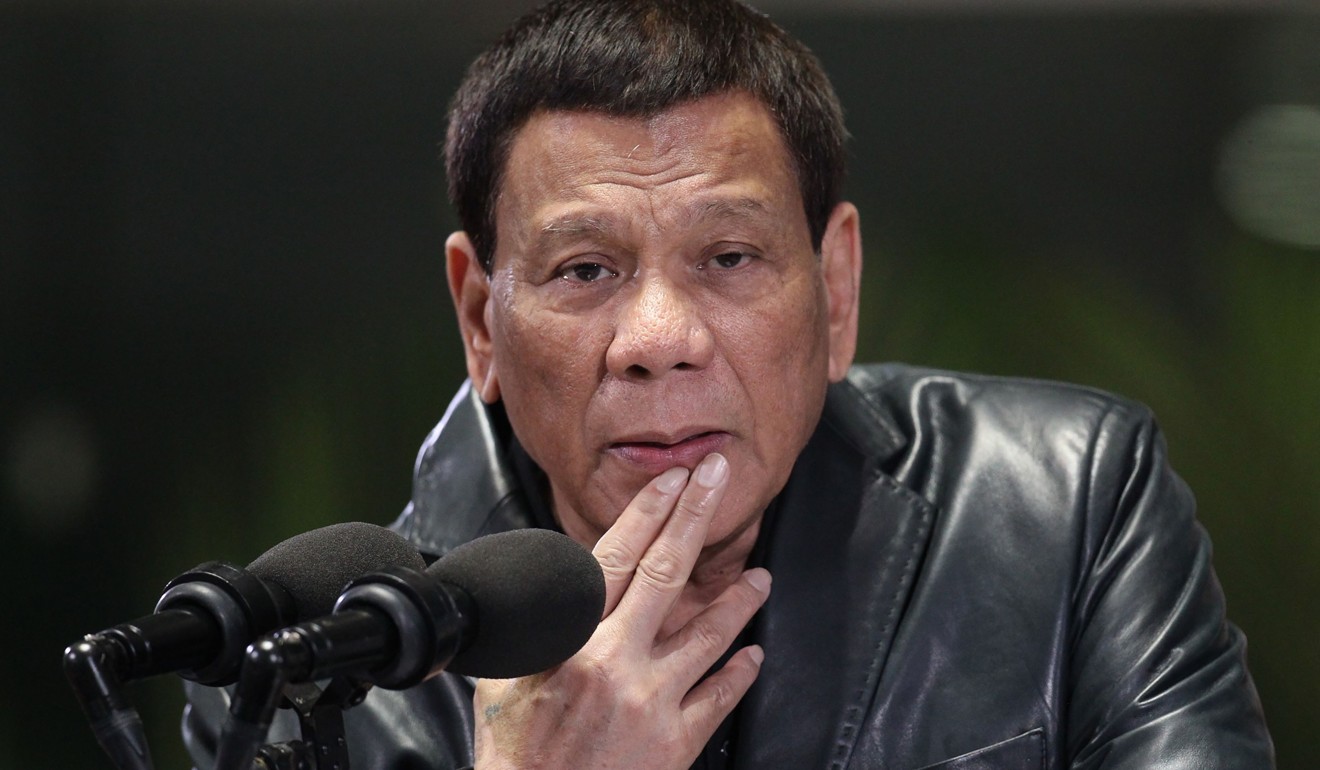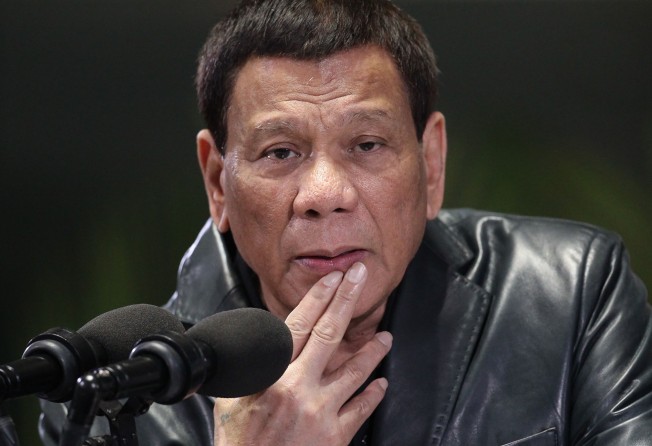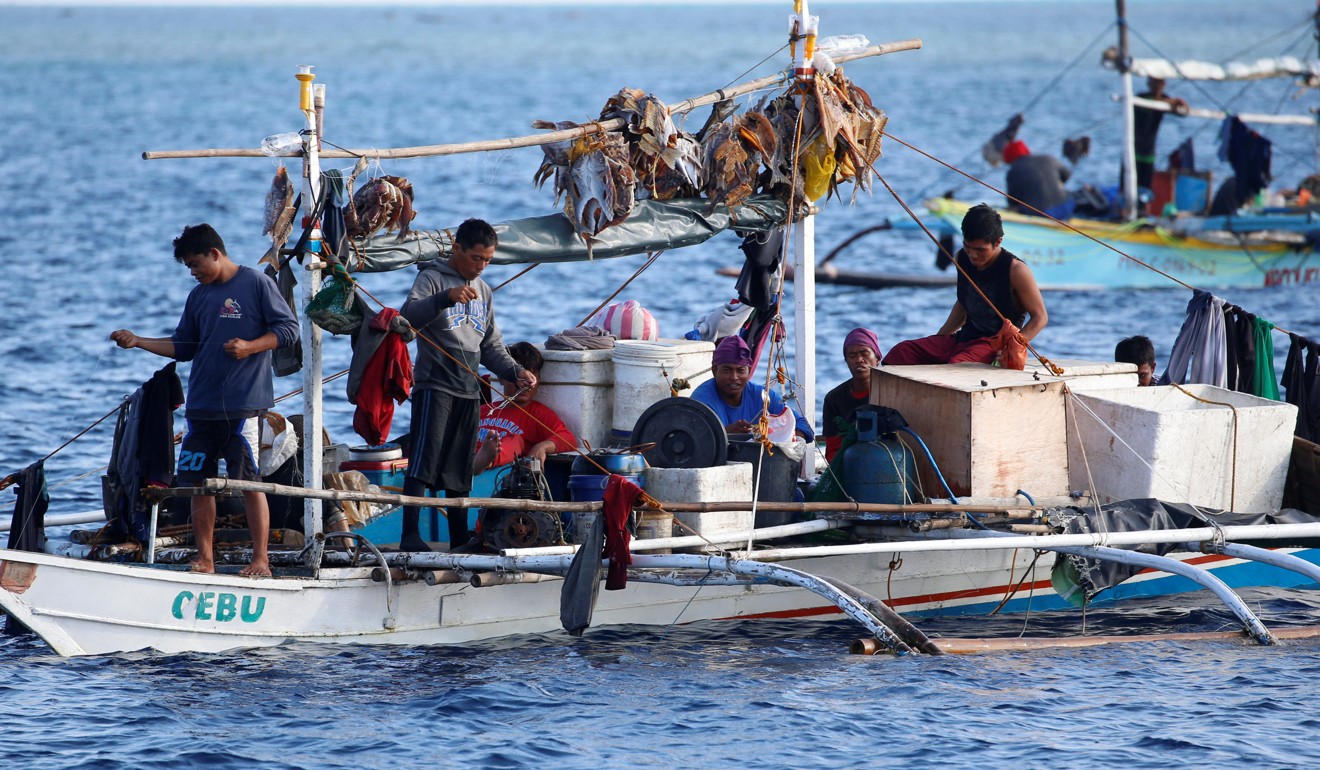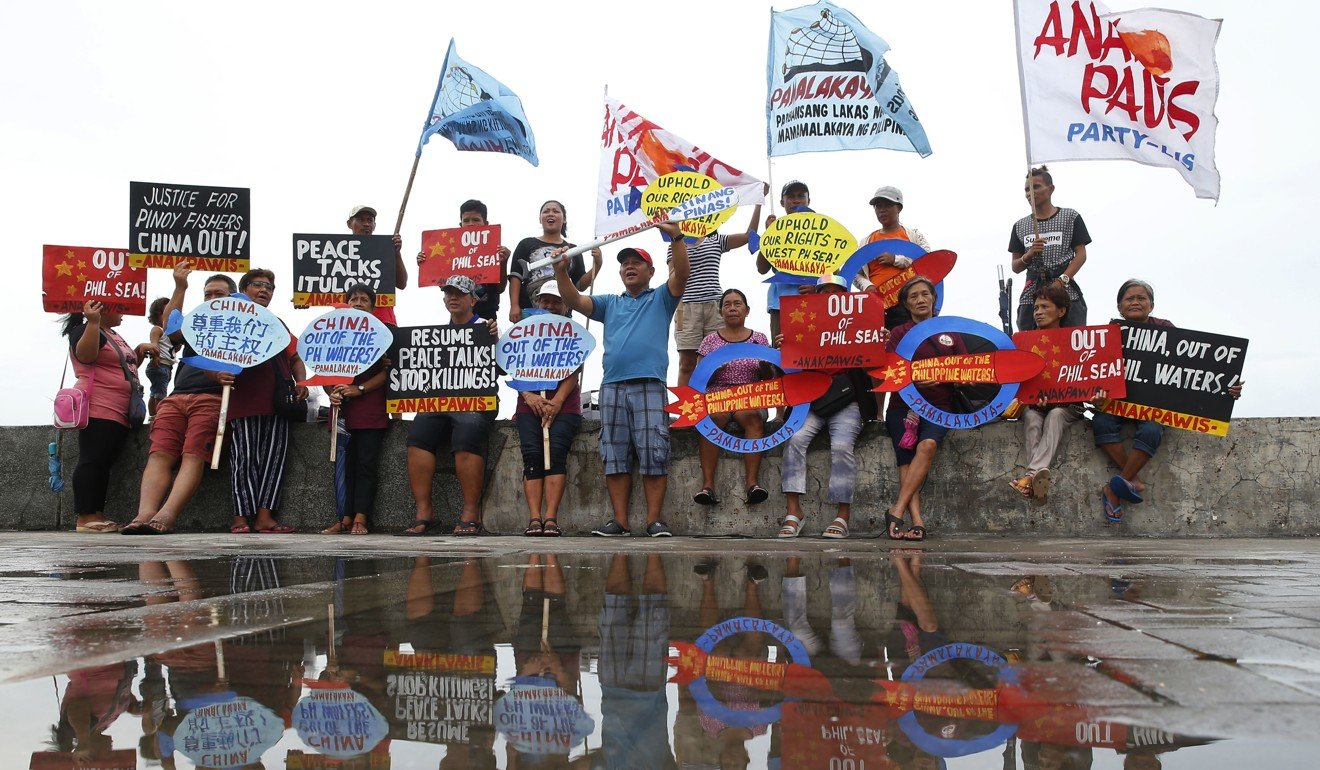
How the Scarborough Shoal came back to haunt China-Philippines relations
Richard Heydarian writes that Filipinos remain sceptical of Duterte’s reassurances that the disputed shoal will see no Chinese reclamation projects

Two years into Rodrigo Duterte’s presidency, the Philippines has once again found itself embroiled in maritime tensions with China.
Despite the Philippine president’s best efforts to place bilateral relations on an even keel, the long-simmering dispute over the Scarborough Shoal is once again threatening to torpedo an otherwise blossoming partnership.
The renewed tensions underscore the persistent sensitivity of the maritime spats to the Filipino public, which still remains largely sceptical of Duterte’s China-friendly approach.
If Duterte and Beijing fail to agree on a mutually acceptable modus vivendi, the two neighbours may once again find themselves in troubled waters.

From Manila’s standpoint, the shoal is part of the Philippines’ national territory. Philippine maritime law experts argue that the country has exercised continuous and effective sovereignty over the shoal since the Spanish colonial era.
Under the Philippine Baselines Law of 2009 (Republic Act 9522), the Philippine government classified the Scarborough Shoal as part of a group of islands under the Republic of the Philippines.
China, however, maintains that the shoal has been part of its territories across the South China Sea since ancient times.
Yet China’s actual attempt to control the shoal didn’t come until earlier this decade. In 2012, the Philippines and China found themselves locked in a dangerous naval stand-off over the shoal. The incident, which lasted for months, was triggered when a Philippine warship, instead of a coastguard vessel, apprehended a group of Chinese fishermen operating in the area.

Beijing responded by dispatching an armada of coastguard vessels to rescue the Chinese fisherman. It also imposed economic sanctions on the Philippines. The tenuous situation, however, was partially diffused when the two sides agreed to a mutual disengagement arrangement.
Yet Chinese coastguard forces have enforced jurisdictional control over the shoal since then. In response, the Benigno Aquino administration filed an arbitration award against China, as bilateral ties plunged to a nadir not seen since the end of cold war.
In 2016, an arbitral tribunal at The Hague ruled that the Scarborough Shoal’s surrounding waters were a common fishing ground and censured Chinese-imposed restrictions on Philippine fishermen straddling the area. Several months later, Duterte, fresh from his state visit to China, announced an informal agreement that would allow Philippine fishermen to return to the shoal.
Earlier this month, however, things came to a head, when GMA Network, a major local television channel, released a documentary that purportedly showed the harassment of Philippine fishermen by Chinese coastguard forces.

Later on, the Philippine Bureau of Fisheries and Aquatic Resources released a report that accused China of inflicting massive damage on area coral reefs. According to a senior government official, it could take the reefs around 40 years to fully recover and host fisheries.
Several Philippine fishermen have said they have been routinely forced to give up their best catch in the Scarborough Shoal to Chinese para-military forces operating in the area.
In the GMA video, one fisherman exclaimed: “Are we slaves of China?” He accused the Duterte administration of not doing enough to protect fishing interests. “It seems that our government has not acted on” these harassments, he continued.
Another fisherman, during a press conference at the presidential palace, complained about extortion and forced “barter deals” in which precious fisheries catch is exchanged for expired noodles and cigarettes.
“It’s against our will but we have to accept that, since they are the ones who have power over the area,” the fisherman lamented.
Eager to maintain momentum in relations, China has promised to ensure maximum access for Philippine fishermen in the shoal out of good will.
The statements immediately provoked a nationwide uproar, placing the Duterte administration in a tough spot.
The president’s critics questioned the wisdom and effectiveness of his “quiet diplomacy” vis-à-vis the South China Sea disputes. Interim Supreme Court Chief Justice Antonio Carpio, an outspoken advocate of a tougher maritime policy, called on the government to file a legal case against China over the issue.
For the next two weeks, the Philippine president, Philippine Foreign Affairs Secretary Alan Peter Cayetano and several senior officials tirelessly defended the country’s China policy.
Chinese Ambassador to the Philippines Zhao Jianhua also took part, promising that Beijing “will check if there’s any misconduct conducted by the Chinese Coast Guard”. If anyone is found guilty, the ambassador said, culpable “individuals will be punished, and the rules will be there”.
The Chinese envoy in the country immediately shifted into diplomacy overdrive, seeking to calm widespread public anger across the Philippines. The images of helplessly marooned and impoverished Philippine fishermen caving in to Chinese para-military forces struck a particularly raw nerve.
Senior Philippine defence officials, such as Philippine Defence Secretary Delfin Lorenzana, have also repeatedly warned that any Chinese reclamation of the shoal would be “unacceptable”.
Eager to maintain the strong momentum in bilateral relations, China has promised to ensure maximum access for Philippine fishermen in the shoal out of “good will”. And it has reportedly reassured Duterte that there won’t be any reclamation on the shoal.
Many Filipinos and Duterte’s countless critics, however, remain sceptical.
Once again, the Scarborough Shoal is haunting bilateral relations.
Richard Heydarian is a Manila-based academic and author